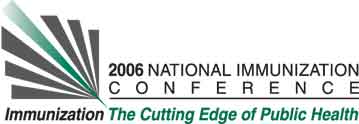Robert Vryheid
1,
Wendy Wang1, Mark H. Sawyer
1, Kathleen W. Gustafson
2, Michelle Picardal
1, Michelle De Guire
1, Cynthia Leard
3, and Kelly Rose
3. (1) San Diego Immunization Partnership, UC San Diego, County of San Diego HHSA Immunization Branch, PO Box 85222, Mail Stop P511B, 3851 Rosecrans Street, San Diego, CA, USA, (2) San Diego County Immunization Branch, County of San Diego Health and Human Services Agency, County of San Diego Health and Human Services Agency, PO Box 85222, Mail Stop P511B, 3851 Rosecrans Street, San Diego, CA, USA, (3) Graduate School of Public Health, San Diego State University, 5500 Campanile Drive MC - 4161, San Diego, CA, USA
Learning Objectives for this Presentation:
By the end of the presentation participants will be able to identify reasons people gave for not receiving influenza vaccine, by age and risk factor.
Background:
Throughout the 2004-05 influenza season and vaccine shortage, CDC recommended that influenza high risk groups receive the vaccine, but changed the recommendations for lower risk groups as the severity of the shortage changed.
Objectives:
Identify reasons why people with different risk factors had never received an influenza vaccination, or received it previously but not in 2004-05.
Methods:
In March-April 2005, an immunization telephone survey was conducted across San Diego County, interviewing 3,022 adults and 1,120 parents of 6-23 month old infants. Those who said they had not received influenza vaccine were asked why using an open-ended question.
Results:
Among the different risk categories of adults who had never received influenza vaccination, the most common reasons were: they were healthy, do not believe the vaccination protects against influenza, or it would make them sick. Among those receiving it in the past but not in 2004-05, the reasons varied by influenza risk factors. Healthcare workers, household contacts of high risk people, and people 50-64 years old said they were saving the vaccine for others with greater need, the provider lacked vaccine, or they are healthy. Those 18-49 years old with health conditions were saving it for others, or the provider lacked vaccine. People ≥65 years old said the provider lacked vaccine, or it makes them sick. For infants, parents said their infant does not need it, they did not know the infant should get it, or they did not want their infant to receive it.
Conclusions:
The reasons adults never received the vaccine were similar across risk categories, but varied among those previously vaccinated but not in 2004-05. More infants' parents answered they did not know of the recommendation.
See more of Which Adults Receive Influenza and Pneumococcal Vaccines and Which Donít? Predictors and Reasons
See more of The 40th National Immunization Conference (NIC)

